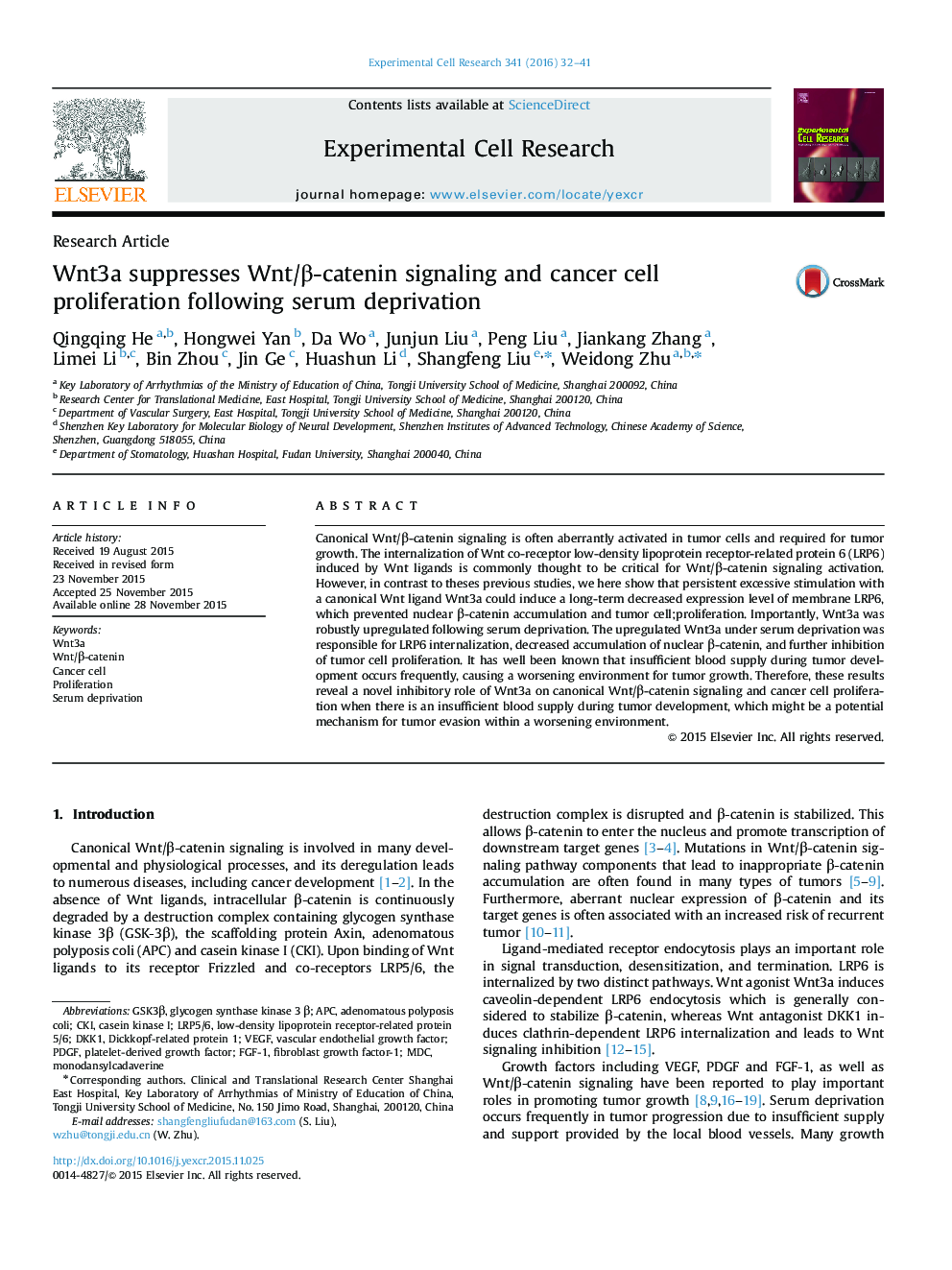| Article ID | Journal | Published Year | Pages | File Type |
|---|---|---|---|---|
| 2130036 | Experimental Cell Research | 2016 | 10 Pages |
•Wnt3a has a novel inhibitory role on Wnt/β-catenin signaling in cancer cells.•Persistent excessive Wnt3a stimulation suppressed β-catenin and cell proliferation.•Inhibitory effects of Wnt3a were mediated by LRP6 endocytosis.•Inhibitory effects of Wnt3a were abolished by Nystatin or FilipinIII.•Serum deprivation suppressed cell proliferation via elevating Wnt3a expression.
Canonical Wnt/β-catenin signaling is often aberrantly activated in tumor cells and required for tumor growth. The internalization of Wnt co-receptor low-density lipoprotein receptor-related protein 6 (LRP6) induced by Wnt ligands is commonly thought to be critical for Wnt/β-catenin signaling activation. However, in contrast to theses previous studies, we here show that persistent excessive stimulation with a canonical Wnt ligand Wnt3a could induce a long-term decreased expression level of membrane LRP6, which prevented nuclear β-catenin accumulation and tumor cell;proliferation. Importantly, Wnt3a was robustly upregulated following serum deprivation. The upregulated Wnt3a under serum deprivation was responsible for LRP6 internalization, decreased accumulation of nuclear β-catenin, and further inhibition of tumor cell proliferation. It has well been known that insufficient blood supply during tumor development occurs frequently, causing a worsening environment for tumor growth. Therefore, these results reveal a novel inhibitory role of Wnt3a on canonical Wnt/β-catenin signaling and cancer cell proliferation when there is an insufficient blood supply during tumor development, which might be a potential mechanism for tumor evasion within a worsening environment.
